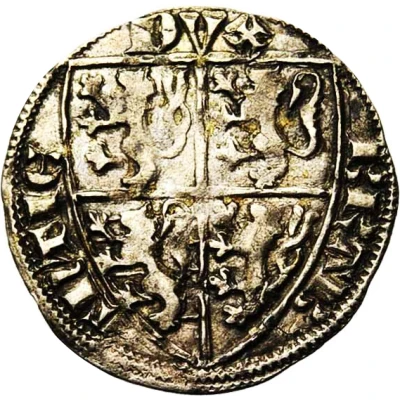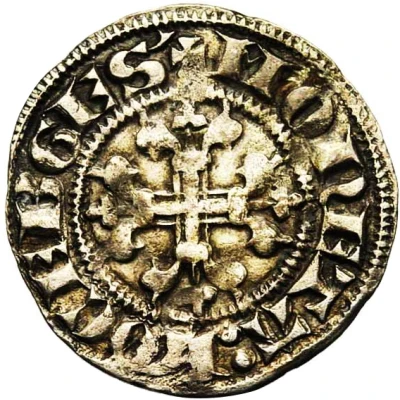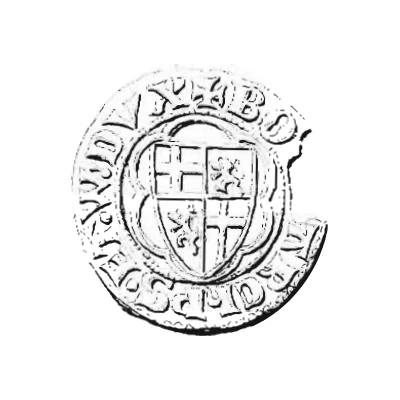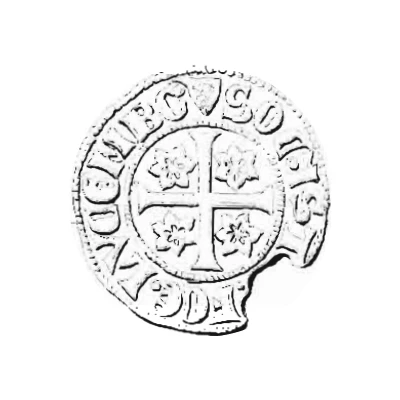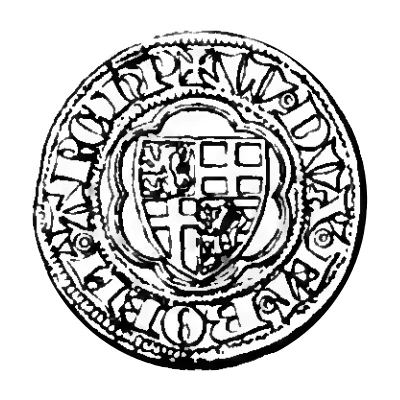
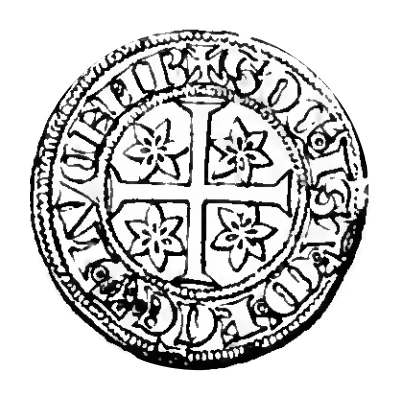

© Ed. Bernays, 1902
⅓ Gros - Wenceslaus I Luxembourg-Trèves ND
| Silver | 1.1 g | - |
| Issuer | Duchy of Luxembourg (Luxembourg) |
|---|---|
| Duke | Wenceslaus I (1353-1383) |
| Type | Standard circulation coin |
| Years | 1359-1362 |
| Value | ⅓ Gros (1⁄120) |
| Currency | Florin (1353-1713) |
| Composition | Silver |
| Weight | 1.1 g |
| Shape | Round (irregular) |
| Technique | Hammered |
| Demonetized | Yes |
| Updated | 2024-10-06 |
| Numista | N#95863 |
|---|---|
| Rarity index | 95% |
Reverse
Long patted cross, quartered with four stars with six points, perforated.
Legend between two pearled circles.
Script: Latin (uncial)
Lettering: SOC'₀ IST'₀ m'₀ FCE₀ LVCEMB
Lettering (regular font): SOC'₀ IST'₀ M'₀ FCE₀ LVCEMB
Translation:
Socii istius monetae factae in Lucemburgo
Solidarity money struck in Luxembourg
Comment
A third of a gros of the highest rarity, a single known copy struck between 1359 and 1362 at the Luxembourg City mint.Luxembourg version of the convention with Trier, see for the version trévisoire.
1/3 gros = 1/60 golden florin
1/3 gros = 10 deniers
Coin from the monetary union[/ b] between Wenceslaus I, Duke of Luxembourg (1353-1383) and Bohemond of Saarbrücken, Archbishop of Trier (1354-1362). "On October 31, 1359, Wenceslaus concluded a very close alliance with Boémond de Saarbrück. The strike of a social coin was the consequence of this good diplomatic agreement" (Bernays and Vannerus, 1910).
From this alliance results the striking of 2 gros, 2 thirds and 2 sixths of gros, each time a version
tréviroise and a luxembourgeoise, recognizable by the difference on the shield and the legend. The shield is quartered so that the first quarter is always occupied by the one at the beginning of the legend. In this case (Luxembourgish version), the first district of Bohemia and early legend of the Duke.
(for the Luxembourgish version, first district of Bohemia and Wincel at the beginning of the legend).
Bohemond dies quickly, the alliance was renewed with his successor but does not seem
not have generated the production of coins.
The first description of this piece, made by Mr. Ed Barneys and published by the RBN, vol. LVII, 1902, pp. 267-272.
The [b]weight of the only existing piece is 1.1 g.
No variants of legend or punctuation is known.
Source: the illustrations on this card come from the article written by Mr. Ed. Bernays and published by the RBN in 1902, vol. LVIII, pp.267-272.
Interesting fact
One interesting fact about the ⅓ Gros coin is that it was issued during the reign of Wenceslaus I, who was the Duke of Luxembourg and also the King of the Romans, making it a rare and valuable coin for collectors.
